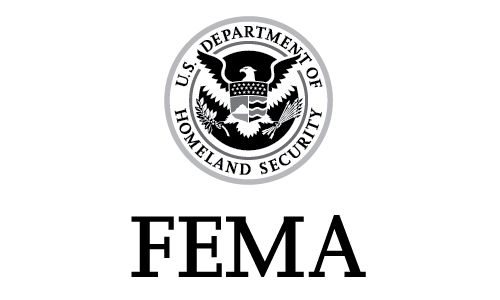Public Comment Period on the National Flood Insurance Program’s Minimum Floodplain Management Standards

FEMA has published a Request for Information notice in the Federal Register seeking public comment on the National Flood Insurance Program’s minimum floodplain standards. The notice also requests comments on how the program could better promote the conservation of threatened and endangered species and their habitats consistent with the Endangered Species Act.
Date: October 12, 2021 - January 27, 2022
Time: 12:00 am - 11:59 pm
Location: Virtual
Event Details
Submit Your Comments
FEMA posted in the Federal Register a Request for Information (RFI) containing a list of questions about the National Flood Insurance Program’s minimum floodplain management standards. This notice also requested comments on how the National Flood Insurance Program could better promote the conservation of threatened and endangered species and their habitats consistent with the Endangered Species Act in its floodplain management standards.
Responses to the included questions will assist FEMA as it considers potential actions and changes as part of the agency’s regular review of programs, regulations, and policies.
Submit your written comments through the Federal eRulemaking Portal using Docket ID:FEMA-2021-2024. FEMA extended the initial 60-day comment period with a 45-day extension to allow stakeholders additional time to submit comments. The comment period occurred between Oct. 12, 2021 - Jan. 27, 2022.
Public Meeting Schedule
In addition to written comments, FEMA hosted three 90-minute virtual public meeting to collect verbal comments from the public, including private sector, government and non-government entities. The content provided was the same for each meeting.
The purpose of the Request for Information was to help FEMA obtain public input on:
- How to align the minimum floodplain management standards with current understanding of flood risk and risk reduction approaches
- Potential improvements to the standards that would help communities become safer, stronger, and more resilient
- How the National Flood Insurance Program can better promote protection of and minimize any adverse impact to listed species and critical habitat
Transcripts available in English and Spanish.
- The first public meeting was held Thursday, Nov. 4.
- The second public meeting was held Monday, Nov. 15.
- The third public meeting was held on Wednesday, Dec. 15.
In addition to providing verbal comments at the public meetings, written comments were submitted to the Federal Register notice.
FEMA used registration information for this event only. FEMA did not share information with any third-parties.
Background
Floods are the most common and most destructive natural disaster in the United States. Every year, flooding causes loss of life and hundreds of millions of dollars in damage to homes and businesses around the United States. Standard homeowners and commercial property insurance policies do not cover flood losses.
To meet the need for this vital coverage, FEMA administers the National Flood Insurance Program (NFIP), which is a voluntary program offering flood insurance to all properties in communities that comply with minimum standards for floodplain management. To be eligible for an NFIP flood insurance policy, a property must first be in a community that participates in the program.
To qualify for the National Flood Insurance Program, a community adopts and enforces a floodplain management ordinance to regulate development in the floodplain. The objective of the ordinance is to minimize the potential for flood damage to development. Today, over 22,500 communities in the throughout the nation participate in the National Flood Insurance Program.
This notice is to identify opportunities to adapt the program’s minimum floodplain management standards to help communities become safer, stronger, and more resilient. The notice also requests comments on how the National Flood Insurance Program could better promote the conservation of threatened and endangered species and their habitats consistent with the Endangered Species Act.
FEMA sought input on ways the agency can:
1) improve the program’s minimum floodplain standards to better align with current understanding of flood risk and risk reduction approaches, and
2) better conserve federally listed species and their habitats.

